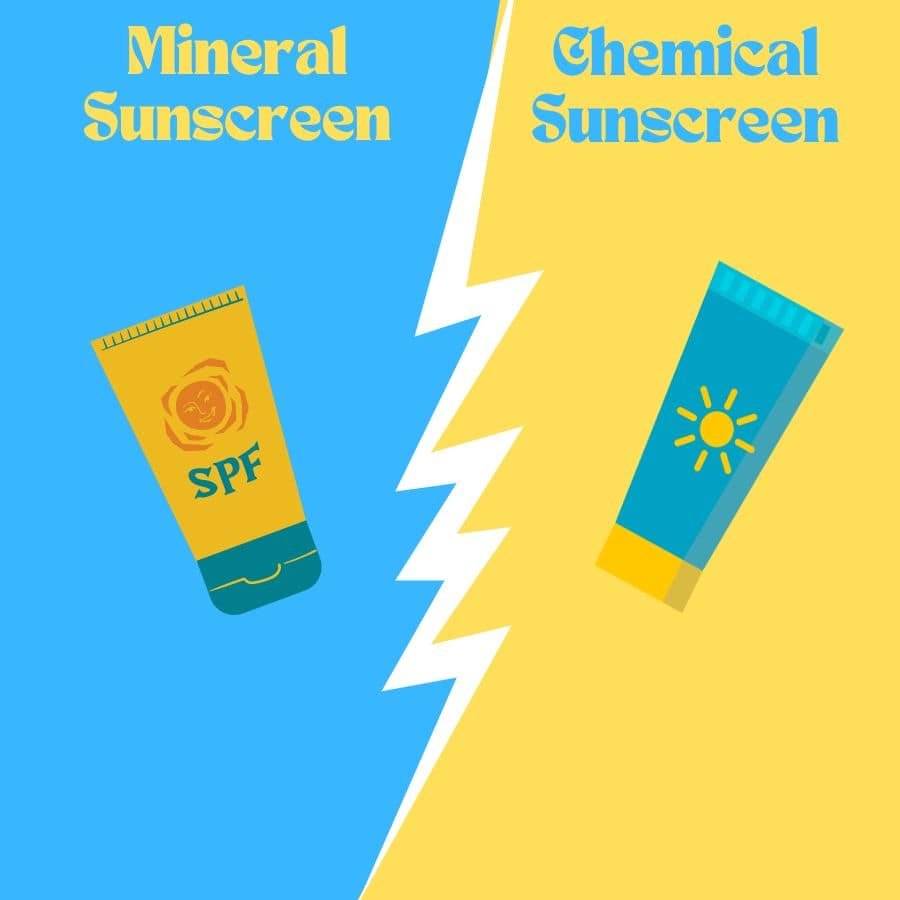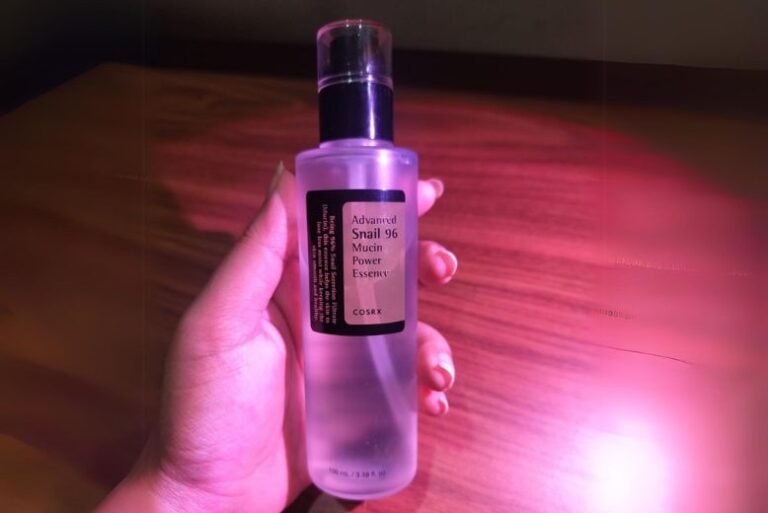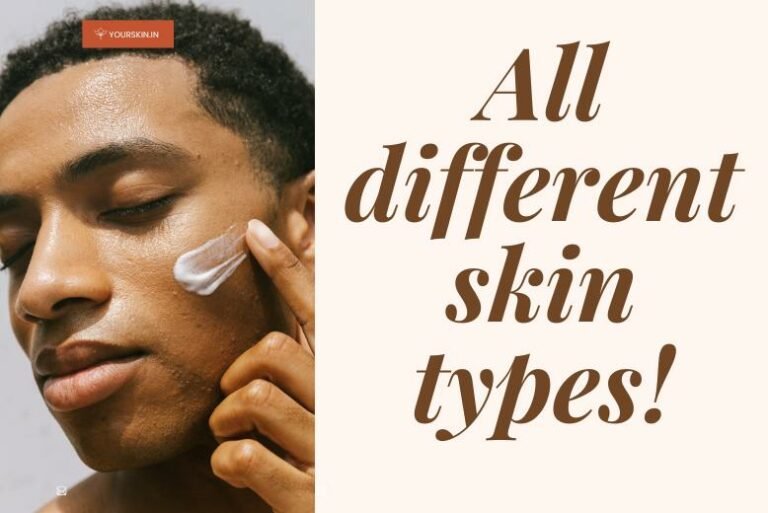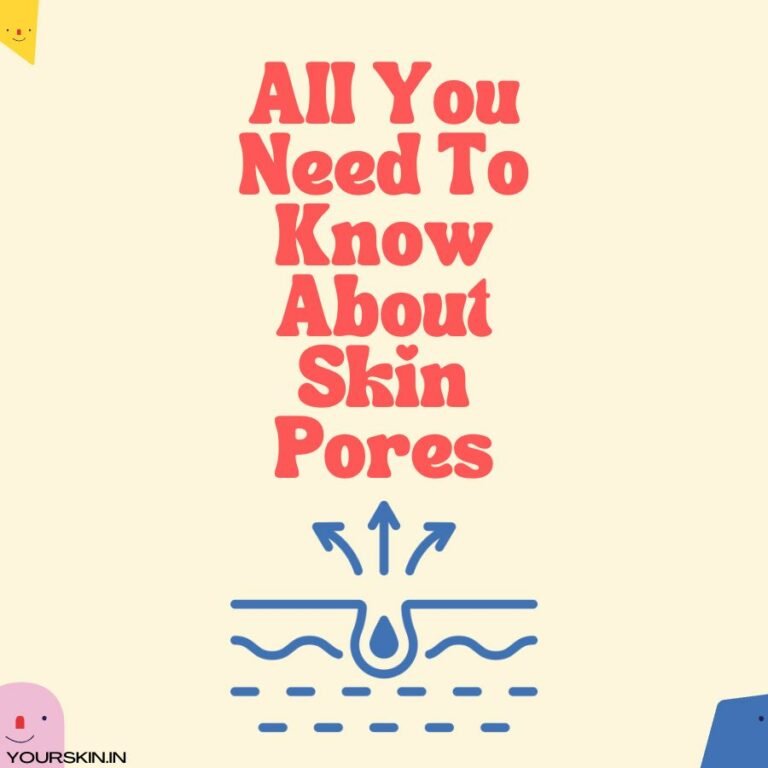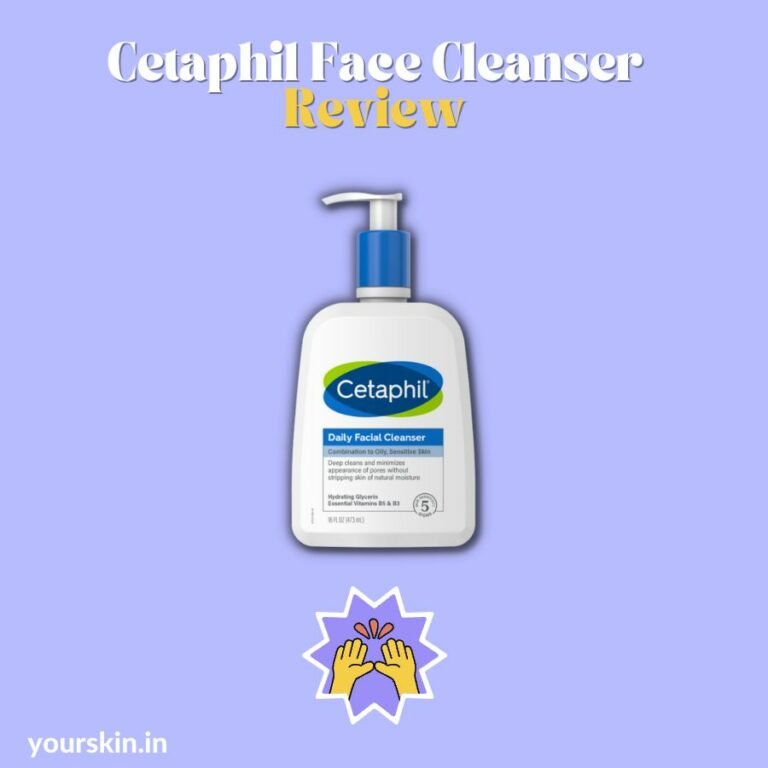Sunscreen is to your skin what a paintbrush is to an artist; no matter how great your skin is capable of looking, without sunscreen it can never be healthy. Sunscreen is the most important thing for your skin. Period.
There has been a steady and much-needed rise in the understanding and use of sunscreen. There was a time when the concept of sunscreen was only applicable to beach-goers.
If you ask any skincare enthusiast about what type of sunscreen they use, it is either going to be a mineral/physical sunscreen or a chemical sunscreen. To the layman, this question will thoroughly confuse them.
All the sunscreen you can buy falls in either of these two categories. Since there is a lot of confusion around the differences, advantages, and disadvantages of these sunscreens, we decided to shed some “sunlight” on them. Here’s Mineral sunscreen vs chemical sunscreen
Mineral Sunscreen and Physical Sunscreen
Mineral sunscreen or physical sunscreen are exactly what they sound like; the active component in this type of sunscreen is a mineral compound and it creates a physical barrier between the sun rays and your skin.
Wearing a mineral sunscreen is literally like having a mirror covering your face; the mineral compounds reflect the sunlight away from your face and hence, protect it from sun damage.
Another great thing about mineral sunscreen is that it starts working right after you apply it. You do not have to wait for it to be absorbed as is the case with chemical sunscreen.
Physical sunscreen uses ingredients like titanium dioxide (TiO2) or zinc oxide (ZnO) to create a reflective barrier. Not just that, but these compounds are also great at trapping pollutants in the air, offering some level of protection from dirt and smoke.
There are some great mineral sunscreens available for the Indian market such as Neutrogena Sheer Zinc SPF 50 sunscreen, Minimalist Multivitamin mineral sunscreen, Re’equil Sheer Zinc Tinted Mineral sunscreen, etc.
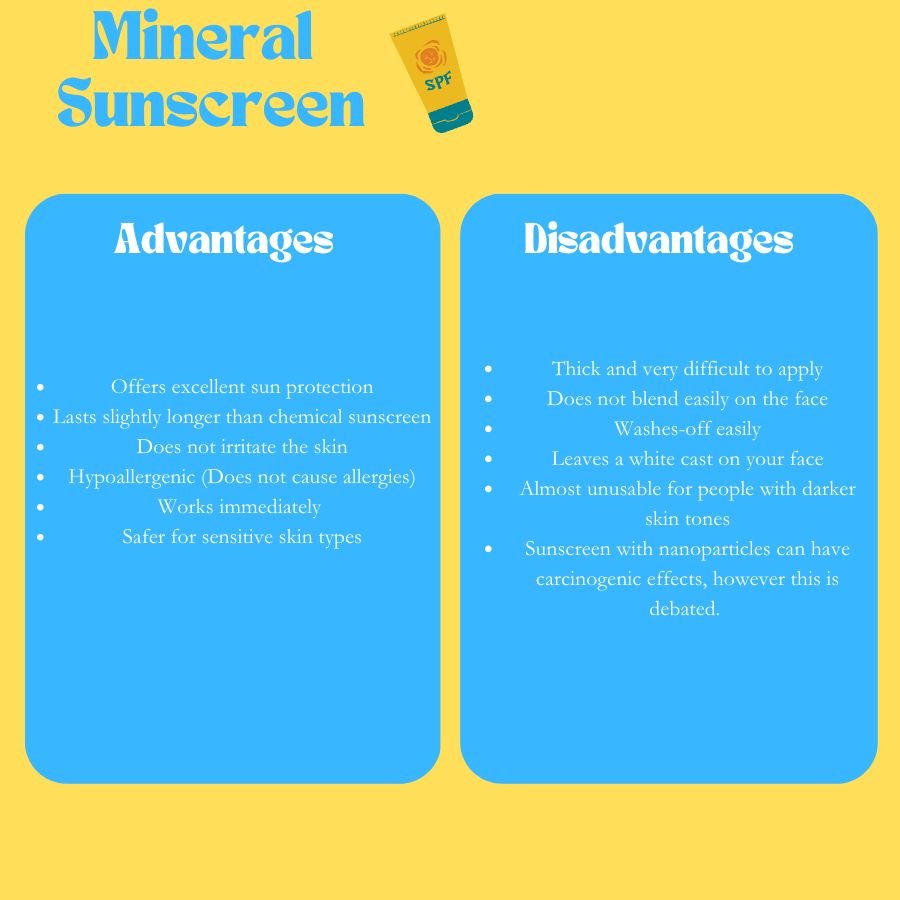
Tinted Zinc Sunscreen
While looking for physical sunscreens, you might notice some brands offering “tinted zinc” sunscreen. There is no difference in the amount of sun protection between normal zinc and tinted zinc sunscreen.
The difference is in the appearance. Tinted zinc sunscreen blends well with the face and leaves little to no whitish appearance or film on the skin.
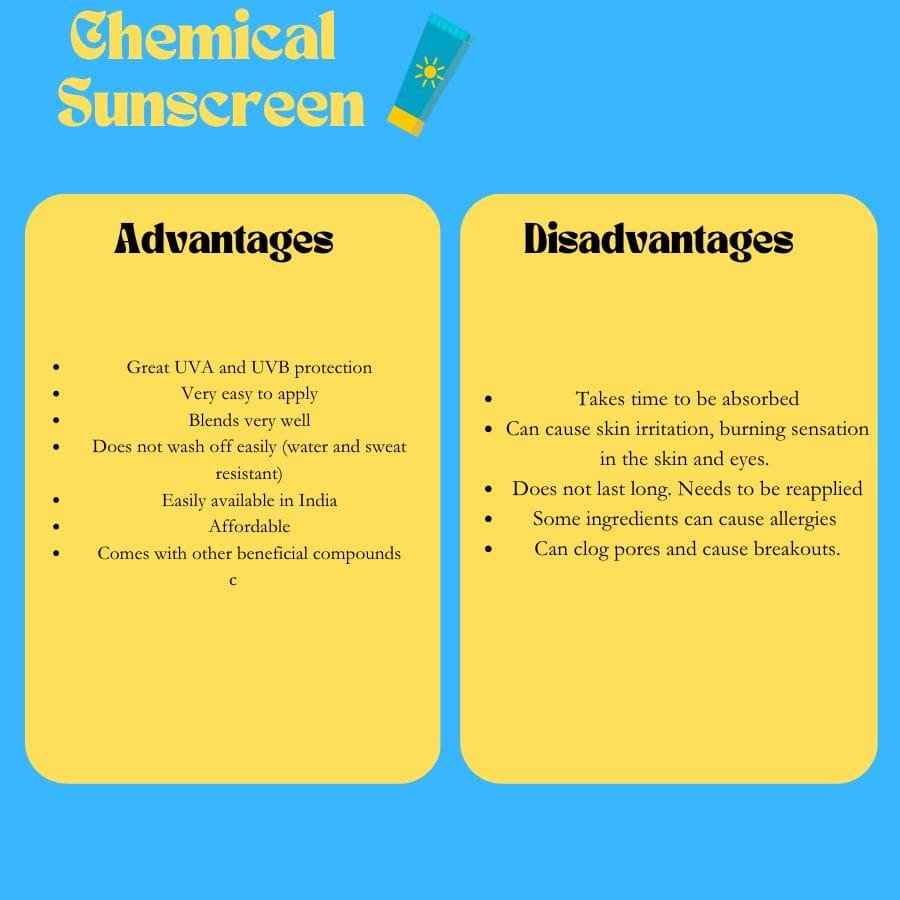
Chemical Sunscreen
Just like the previous type of sunscreen, chemical sunscreen is not named deceptively either; the active ingredient of this type of sunscreen is usually a mix of different chemicals.
Instead of reflecting the sunlight as in mineral sunscreen, chemical sunscreens absorb them. Instead of acting like a mirror, they act like a sponge. When we talk about sunlight, we are referring to both UVA and UVB radiation.
So when the UV radiation hit the chemicals in the sunscreen film, it gets absorbed in the chemicals. The light is converted into heat and slowly the sunscreen melts.
This is the reason why you should reapply sunscreen after 1-2 hours of application based on the amount of UV exposure. The same is applicable to physical sunscreen as well.
The common chemical components of chemical sunscreen (Alliteration award goes to me) include:
- Homosalate
- Oxybenzone
- Avobenzone
- Octisalate
- Octocrylene
- Octinoxate
- Octyl methoxycinnamate
- Sulisobenzone
We’ll link another article where we discuss the safety and disadvantages of these chemicals so that you make a better and safer decision.
Mineral Sunscreen vs Chemical Sunscreen: Which Sunscreen is Better?
The most important point of comparing two different things is finding out which one is better (and which one is worse) among the two.
If any one of the two types of sunscreen was extremely better than the other, there wouldn’t be an “other” to compare it with.
Both chemical and physical sunscreen are equally capable and effective in protecting your skin from sun damage. A common saying goes like this
“It does not matter which type of sunscreen you apply as long as you properly and frequently apply sunscreen“
Applying sunscreen is what matters. But you are not here for such diplomatic answers, are you? Let’s put these two in a match and see which one emerges as the better option.
Advantages and Disadvantages of Mineral Sunscreen
Mineral sunscreens are generally better in terms of protection and safety for your skin, and worse in application process and blending. Let’s look at all the great and not-so-great things about mineral sunscreens.
Advantages
- Offers excellent sun protection
- Lasts slightly longer than chemical sunscreen
- Does not irritate the skin
- Hypoallergenic (Does not cause allergies)
- Works immediately
- Safer for sensitive skin types
An interesting thing worth noting is that sometimes, for some people, physical sunscreen might provide better protection than chemical ones. This added protection is not because physical sunscreens are better.
Interesting research found that since physical sunscreen does not spread easily on the skin, people are likely to apply more of it to cover the face completely.
Chemical sunscreen spreads and blends very well, leading to minimal application and hence, inadequate protection against the sun.
Disadvantages
- Thick and very difficult to apply
- Does not blend easily on the face
- Washes-off easily
- Leaves a white cast on your face
- Almost unusable for people with darker skin tones
- Sunscreen with nanoparticles can have carcinogenic effects (Gulson, 2012), however, this is debated.
Advantages and Disadvantages of Chemical Sunscreen
Despite the disadvantages of chemical sunscreens that might be more than their physical counterparts, it does not make them lacking or damaging for all people. Let’s take a look at chemical sunscreen’s advantages and disadvantages.
Advantages
- Great UVA and UVB protection
- Very easy to apply
- Blends very well
- Does not wash off easily (water and sweat resistant)
- Easily available in India
- Affordable
- Comes with other beneficial compounds
Disadvantages
- Takes time to be absorbed
- Can cause skin irritation, a burning sensation in the skin and eyes.
- Does not last long. Needs to be reapplied
- Some ingredients can cause allergies
- Can clog pores and cause breakouts.
Combining Both Sunscreens?
Why put mineral sunscreen vs chemical sunscreen? Everyone is tempted to say “Why not both?” when it comes to choosing between two. So why not apply both types of sunscreen for complete sun protection?
You can if you want to. But research has shown that it does not increase sun protection. You’d still get the same sun protection.
So the better option for you is to choose the type of sunscreen that suits your skin, keep applying it frequently especially if you are exposed to sunlight, and make sure that the sunscreen does not irritate your skin.
Take care of your skin. Take a look at this article: Why mineral sunscreen are better for you

